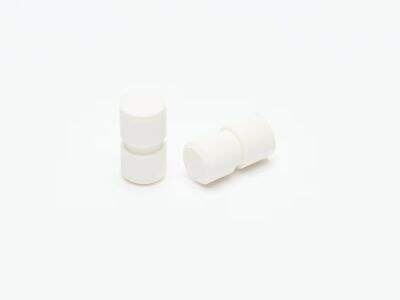মেডিকেল সিলিকন একটি অনন্য ধরনের উপাদান যা সাধারণত স্বাস্থ্য সম্পর্কিত পণ্য যেমন ইমপ্লান্ট, ক্যাথেটার এবং প্রোথেটিক্সের মধ্যে পাওয়া যায়। কিন্তু এই উপাদানটি কি মানুষের শরীরের জন্য নিরাপদ? আরও পড়ুনঃ চিকিৎসা সিলিকনের নিরাপত্তা
মেডিকেল সিলিকন কি?
1. মেডিকেল সিলিকন চিকিৎসা আবেদনকারীদের জন্য ডিজাইন করা হয়েছে। এটি সিলিকন, অক্সিজেন, কার্বন এবং হাইড্রোজেনের মতো পদার্থ দিয়ে গঠিত, যা প্রতিটি প্রকৃতিতে বিদ্যমান। চিকিৎসা ক্ষেত্রে ব্যবহৃত সিলিকন নমনীয়, টেকসই এবং শরীরের সংস্পর্শে আসার জন্যও নিরাপদ।
মেডিকেল সিলিকন কেন নিরাপদ?
দেখা যাচ্ছে, নিরাপত্তা মানে এমন একটি উপাদান যা জীবন্ত টিস্যুতে ভালোভাবে কাজ করতে পারে ক্ষতি না করে। এটি অত্যন্ত নিরাপদ; এটি রোগীদের অসুস্থ করে তোলার বা শরীরের দ্বারা প্রত্যাখ্যান হওয়ার সম্ভাবনা খুব কম। এর কারণ হল যে মেডিকেল সিলিকন মানব টিস্যুতে বিষাক্ত নয় এবং শরীরের তরলগুলির সাথে প্রতিক্রিয়া বা সংযুক্তি করে না।
চিকিৎসা স্তরের সিলিকন সম্পর্কে ব্যাপকভাবে ছড়িয়ে পড়া মিথ্যা ধারণা
এটি মনে হয় যে কিছু মানুষ বিশ্বাস করে যে চিকিৎসা সিলিকন অ্যালার্জি উত্পাদন করতে পারে, বা বিষাক্ত হতে পারে। তবে চিকিৎসা সিলিকোন ও রিং শরীরের জন্য নিরাপদ হিসাবে প্রমাণিত হয়েছে এবং সাধারণত সমস্যা তৈরি করে না। বাস্তবে এটি চিকিৎসা ক্ষেত্রে দশক ধরে ব্যবহৃত হয়েছে এবং নিরাপদ হিসাবে বিবেচিত হয়।
চিকিৎসা সিলিকন আপনার শরীরে কিভাবে কাজ করে?
যখন চিকিৎসা সিলিকন শরীরের ভেতরে বসানো হয়, তখন এটি তরল এবং ব্যাকটেরিয়া বাইরে রাখার জন্য একটি শক্তিশালী প্রতিরোধ গড়ে তোলে। এটি সংক্রমণের ঝুঁকি কমাতে সাহায্য করে এবং শরীরের কার্যকরভাবে পুনরুজ্জীবন সাহায্য করে। এছাড়াও, চিকিৎসা সিলিকন রাবার গ্যাসকেট তরল বা ব্যাকটেরিয়া ধরে না, যা নিরাপত্তার জন্য ভালো।
চিকিৎসা সিলিকনের নিরাপত্তা পরীক্ষা
চিকিৎসা সিলিকন স্টপার পণ্যগুলি ব্যবহারের আগে পেশেন্টদের কাছে নিরাপত্তা এবং কার্যকারিতা পরীক্ষা করা হয়। তা অন্তর্ভুক্ত করে ম্যাটেরিয়াল জীবন্ত টিস্যুস সঙ্গে কিভাবে ইন্টারঅ্যাক্ট করে তার পরীক্ষা। হেলথকেয়ার প্রদানকারীরা, তাদের পালটা, মেডিকেল-গ্রেড সিলিকোন পণ্যগুলি ব্যবহার এবং রক্ষণাবেক্ষণের জন্য শক্তিশালী নির্দেশিকা মেনে চলে যাতে পেশেন্টদের নিরাপত্তা নিশ্চিত করা যায়।

 EN
EN
 CN
CN AR
AR
 HR
HR
 CS
CS
 DA
DA
 NL
NL
 FI
FI
 FR
FR
 DE
DE
 EL
EL
 IT
IT
 JA
JA
 KO
KO
 NO
NO
 PL
PL
 PT
PT
 RO
RO
 RU
RU
 ES
ES
 SV
SV
 IW
IW
 ID
ID
 LV
LV
 SR
SR
 UK
UK
 VI
VI
 ET
ET
 HU
HU
 TH
TH
 TR
TR
 FA
FA
 AF
AF
 MS
MS
 GA
GA
 CY
CY
 MK
MK
 KA
KA
 UR
UR
 BN
BN
 MN
MN

